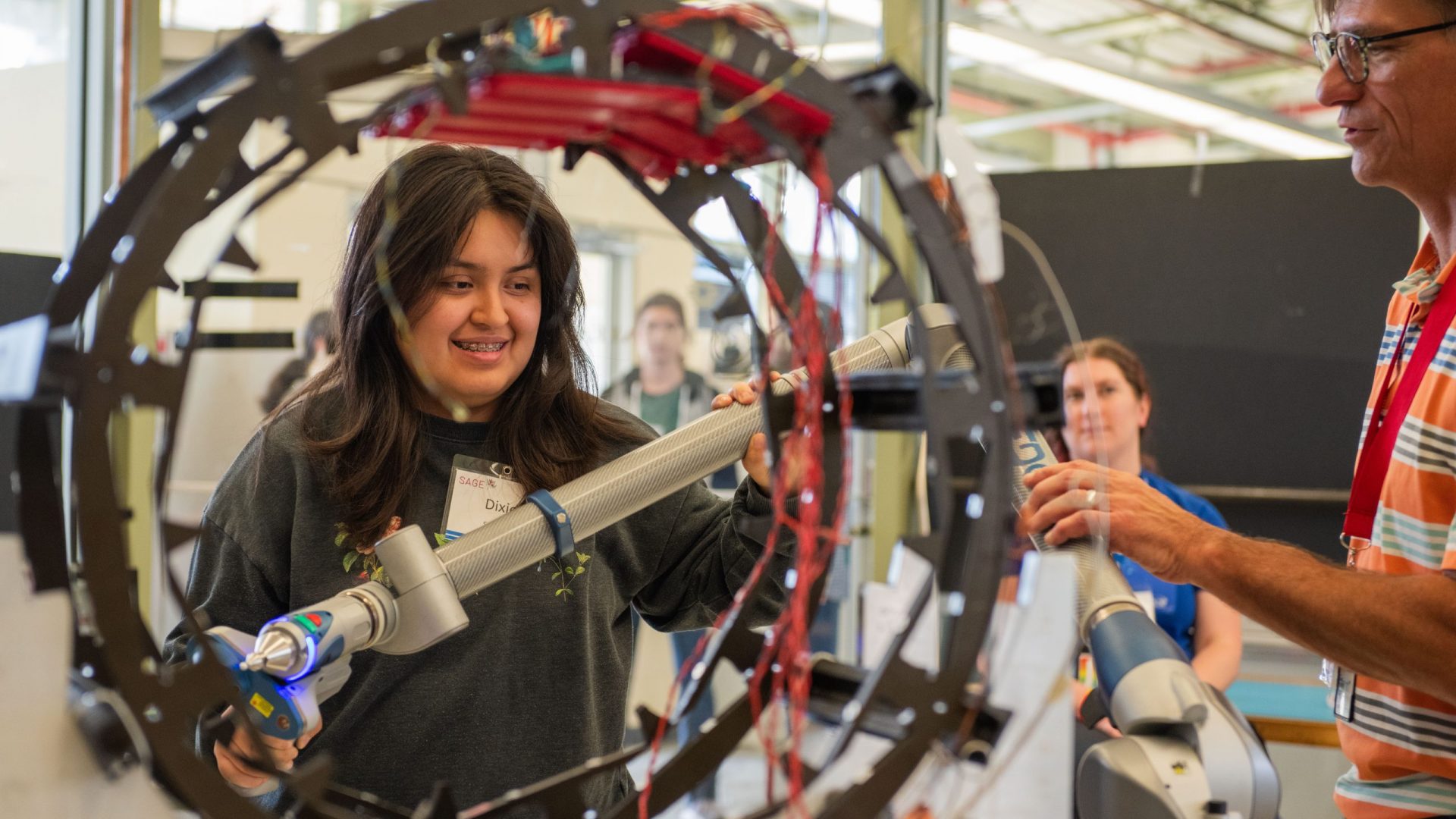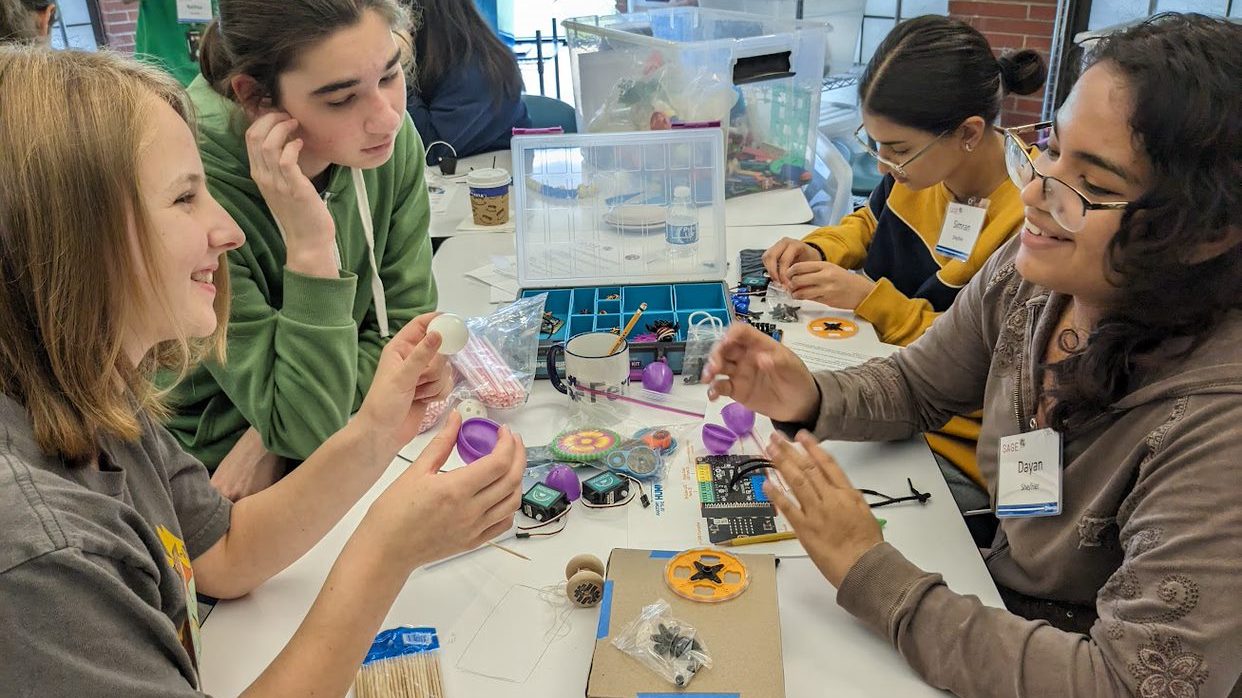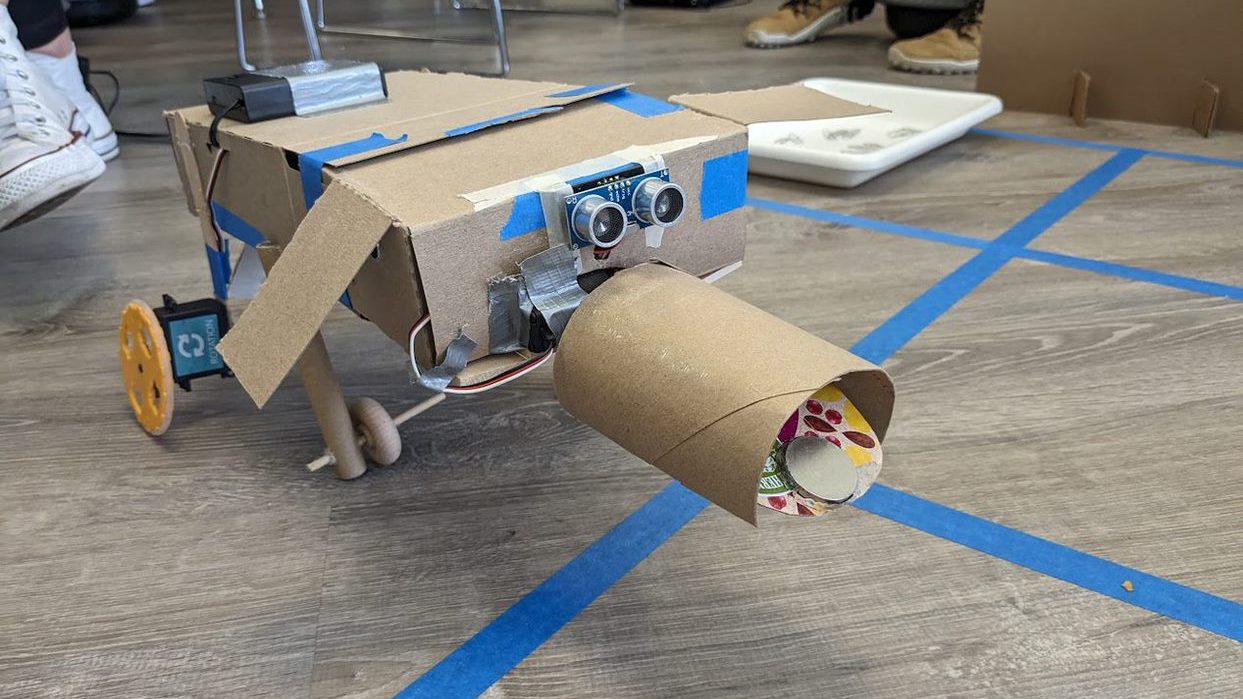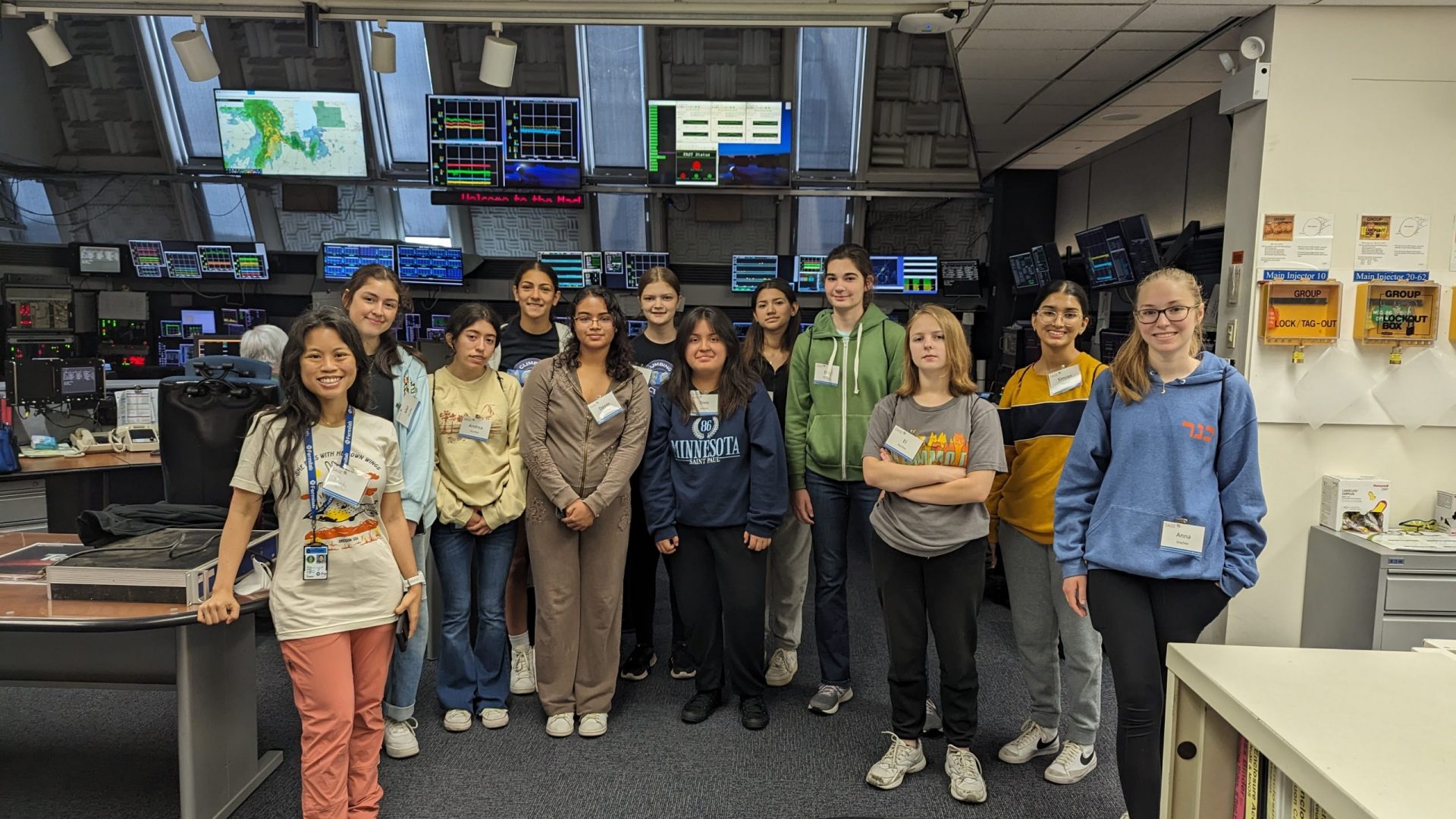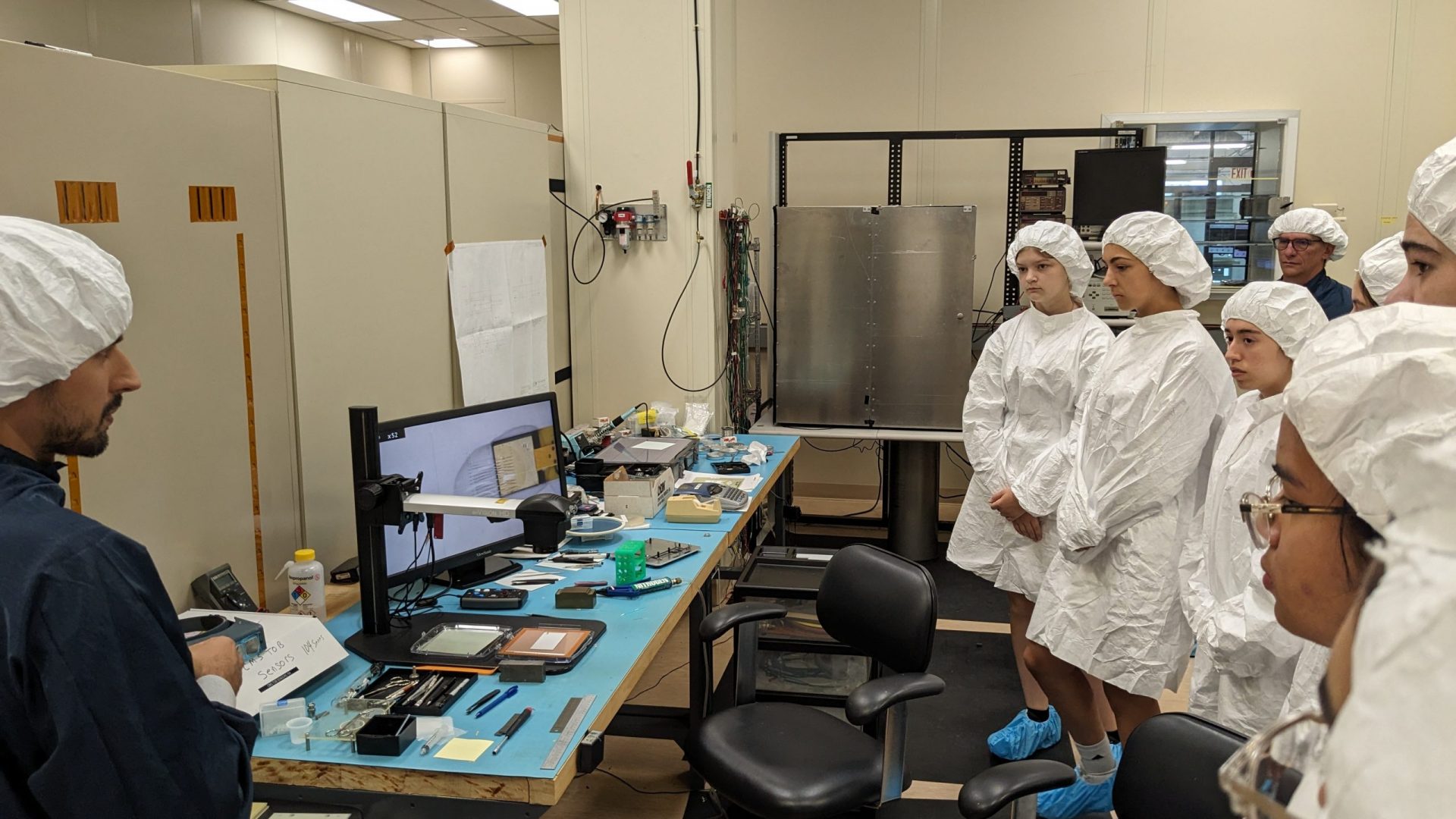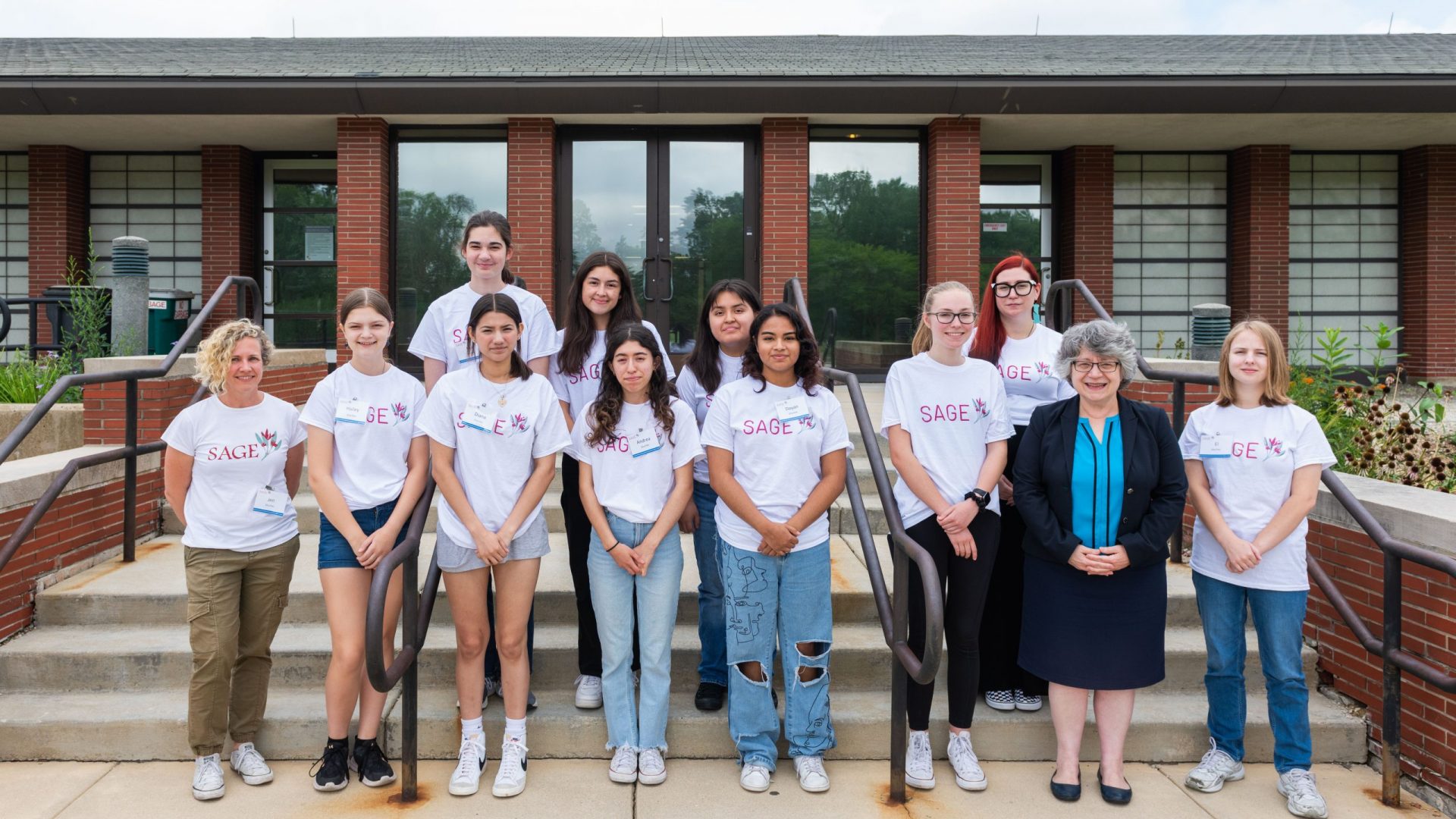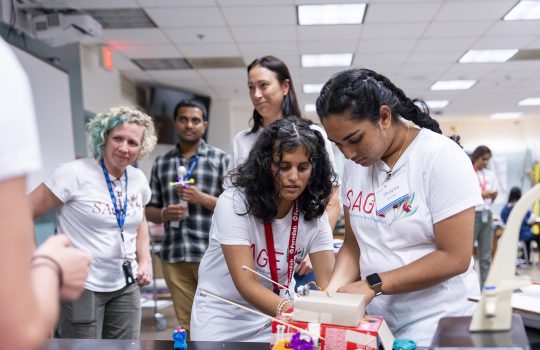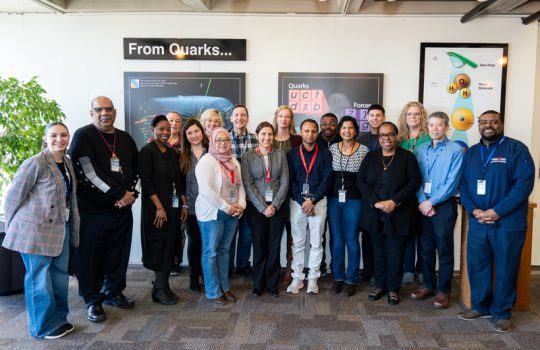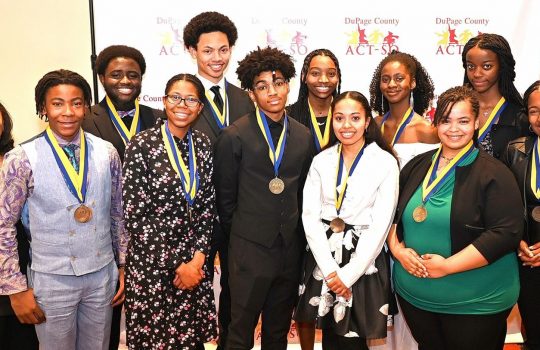The Science Accelerating Girls’ Engagement in STEM program aims to broaden gender diversity in science, technology, engineering and mathematics, and inspire students to pursue careers in a STEM field.
The idea for SAGE camp was thought up by Lia Merminga, director of the U.S. Department of Energy’s Fermi National Accelerator Laboratory, while she held a scientific leadership position at SLAC National Accelerator Laboratory. Together with engineers Diana Gamzina and Giulia Lanza, she obtained the support from the Gordon and Betty Moore Foundation. The first camp took place at SLAC in 2018. Since then five other DOE national laboratories have begun to offer the program with the help of the Moore Foundation.
Fermilab hosted its second annual SAGE camp in 2023. During the five-day program, the students participated in professional development and journaling, tours of laboratory spaces, talks from women STEM professionals who work at the lab, hands-on science projects and preparations for their final presentations.
“For the 2023 camp, we came up with a whole new set of projects for the students. We thought we could do even more exciting and better projects than our first camp in 2022,” said Fermilab scientist Jennifer Raaf, who coordinated the SAGE camp together with educator Mari Oates.
They provided the SAGE students with a quintessential Fermilab experience.
“The new projects we offered highlighted different aspects of the lab’s work and showcased a variety of STEM careers,” said Oates.
Cindy Joe, an engineering physicist at Fermilab, gave the students a special tour of the main control room for Fermilab’s particle accelerator complex. This is where accelerator operators monitor the beam of protons accelerating to near the speed of light to enable experiments studying particles at Fermilab.
To make discoveries in particle physics, Fermilab researchers build giant, complex detectors to study collisions of protons from the Fermilab accelerator complex. Fermilab metrologist Gary Teafoe showed SAGE participants how to use a measuring device called the FARO arm. They learned how to make precision measurements and compared the dimensions of physical detector components with the dimensions specified in 3D models.
Members of Fermilab’s Robotics Initiative provided students with their expertise. For the camp’s main project, SAGE organizers challenged the young explorers to build robots and have them perform a set of tasks. The students programmed the robots to turn left and move forward until the robots’ distance sensor detected a wall. The robots would then stop and collect paper clips using a magnet. The students programmed the robots to turn around and return to the start point to drop off the paper clips.
“Robots are exciting,” said Finley Novak, an engineer for the controls department in Fermilab’s Accelerator Division and member of the Robotics Initiative at Fermilab. “It was a lot of fun to see what the students came up with. They all approached the designs a little differently. It was good to see them collaborate and work as a team to solve the problem at hand.”
Throughout the week, women who work in STEM roles at Fermilab shared their career paths with the SAGE camp participants. Students heard from Lia Merminga, director of Fermilab; Becky Thompson, Fermilab’s head of Education and Public Engagement; Minerba Betancourt, a particle physicist in Fermilab’s Neutrino Division; Jemila Adetunji, head of Quality Assurance at Fermilab; and Roshanda Spillers, an accelerator and computing technician at the lab.
“We want to inspire the next generation of women and gender minority STEM professionals because they will be integral to solving the challenges of the future,” said Merminga. “SAGE camp gives the students an opportunity to envision their own journeys into a STEM career, and aims to convince them they can do it!”
The 2024 SAGE camp at Fermilab will take place July 8-12. Further information will be posted later this year.
The SAGE program is supported by the Gordon and Betty Moore Foundation, the Office of High Energy Physics within the DOE Office of Science and many volunteers at DOE national laboratories.
Fermi National Accelerator Laboratory is supported by the Office of Science of the U.S. Department of Energy. The Office of Science is the single largest supporter of basic research in the physical sciences in the United States and is working to address some of the most pressing challenges of our time. For more information, please visit science.energy.gov.

